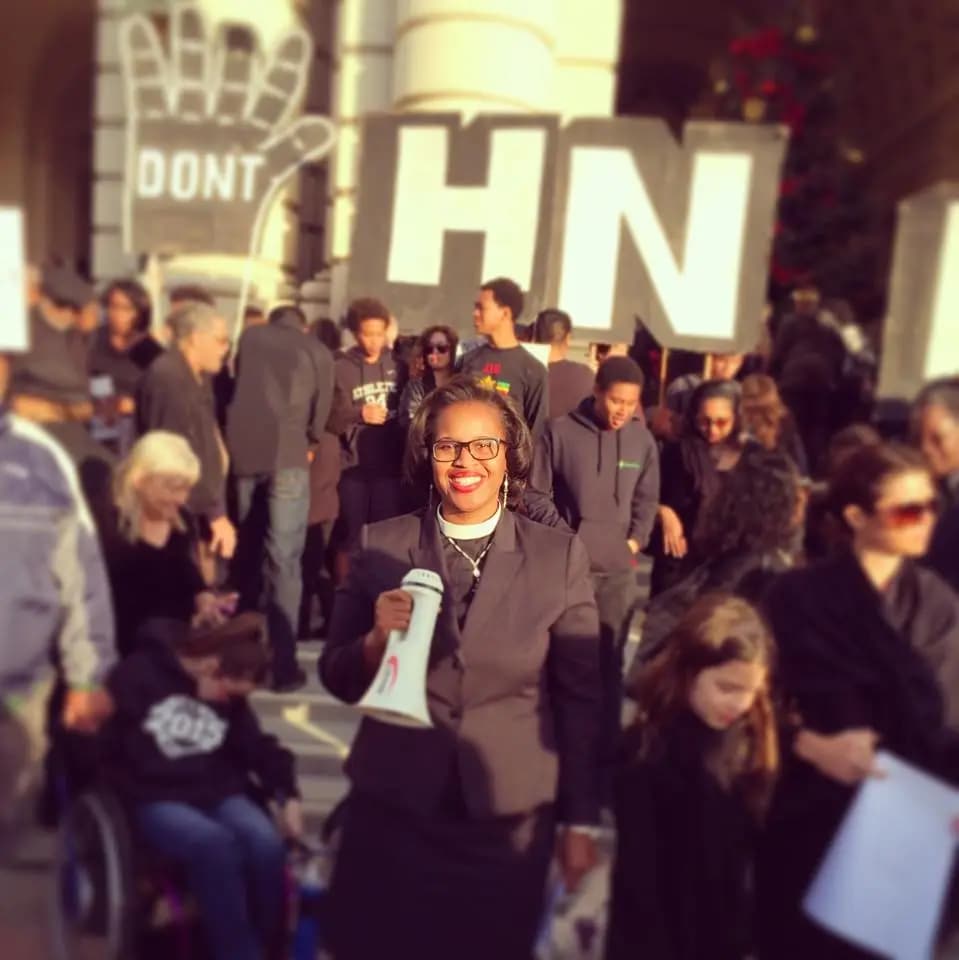Description
We are excited that you want to learn more about abolition! This certificate is an introduction to abolition and is designed for participants at all levels. The Abolition as Social Change certificate program issued by Abolitionist Sanctuary trains individuals to apply a critical and intersectional lens to understand abolition as a moral directive to repair harms, restore relationships, and rebuild more just and equitable systems. We provide one approach to abolition and recognize there are several ways to do abolition in the world. Our methodology is rooted in lived experiences, evidence-based research, and the embodied knowledge of Black women. This program is intended to help participants gain understanding and tools to advance a national coalition committed to ending systems of domination and creating communities of care for human flourishing. Together, we can build abolitionist sanctuaries!
How will we learn together?
Learn our PACTS pedagogy developed by Abolitionist Sanctuary. Each lesson presents
- Principles to review key terminology,
- Analysis to engage topics and social issues,
- Coalition-building to connect to communities and accountability,
- Transformation strategies to apply learning for social impact, and
- Sanctuary to showcase responses, actions, and solutions to repair harms, restore relationships, and rebuild more just and equitable world.
Each of the five courses are interactive, self-paced, and on-demand. They are designed to standalone. However, the courses are best taken together for comprehensive instruction and understanding. The first three courses provide a theoretical framework and the last two courses are oriented toward practical connections and implications and applications for real-life contexts.
- 101 Introduction to Abolition presents the history of punishment and abolition in the United States with an emphasis on slavery, lynching, segregation, and the birth of prisons.
- 102 Ethics of Abolition introduces 5C communal virtues and contrasting carceral vices that society uses to punish people who transgress dominant social norms.
- 103 Intersectionality and Abolition engages intersectional approaches with an emphasis on poor Black mothers’ experiences with survival and carceral systems.
- 104 Law, Public Policy and Abolition explores public policy paradoxes that target deviant populations, causal stories and policy narratives that influence agenda-setting, and how to challenge degenerative policies with a social constructionist public policy design process.
- 105 Abolition in Action uses case studies to investigate real-life social problems and apply abolitionist principles to identify actions aimed at social change.
For the final capstone project, participants complete a Sanctuary Showcase presenting their findings across the five courses and a community service project that demonstrates a sustained commitment to abolition. We are so glad you are here. Please share and invite others to join!
In the spirit of abolition,
In the spirit of abolition,
Rev. Nikia Smith Robert, Ph.D.
Founder and Executive Director, Abolitionist Sanctuary
Learning Objectives
By the end of the courses, you will be able to:
- Understand historical contexts of abolition movements in the United States;
- Learn abolition ethics and the 5C communal virtue system in contrast to carceral vices that perpetuate individual blame amd punitive responses;
- Explore intersectional issues related to race, gender/sexuality, and class, with a focus on Black women and mothers’ experience with criminalization and incarceration;
- Identify public policy processes to influence political decision-making; and
- Imagine and implement call-to-actions to create abolitionist outcomes for sanctuary and social change.
Students who complete the certificate program will also be able to
- Create a community service project identifying interventions to a social problem and a sustained commitment to abolition as social change;
- Present service project for community feedback and accountability.
Each course is designed to stand on its own, but the courses are most effective when completed together for certification.


